For Mahlagha Mallah, it was a great honor to be a granddaughter of Bibi Khanoom Astarabadi, who founded in 1906 the first girls’ school in Iran. But she wanted more. By furthering women’s rights and inspired by the lives of her mother and grandmother, she became the first female environmental activist in Iran and ultimately became known as the "Mother of Iran's Environment."
Mahlagha was born in a caravansary in 1917, as her parents were traveling from Tehran to the north-eastern city of Mashhad.
Her father, Agha Bozorg Mallah, worked for the government in a job that required the family to move frequently. As a result, Mallah spent her childhood in several cities across Iran such as Ghoochan, Mashhad, Isfahan, Hamedan and Kermanshah. Her mother, Khadijeh Afzal-Vaziri, had an unconventional childhood because of the views of her mother, Bibi Khanoom Astarabadi. For example, the educational pioneer dressed her daughter in boy’s clothing when she was very young. And she passed down many of the values she had learned to her daughter. Both Mahlagha’s grandmother and mother taught her about women’s rights and encouraged her to study. To pursue her studies, Mallah went to live with her aunt in Tehran because provincial towns did not offer girls education beyond the elementary level.
At 17, Mallah married Hossein Abolhasani, an employee of the Ministry of Education. He supported Mallah throughout their lives together.
Mallah received a Bachelor’s degree in philosophy from the University of Tehran, and in 1958 was one of the first students to receive a Master’s degree in sociology. In 1966, she was awarded a grant to pursue a PhD degree at Sorbonne University in Paris, where she moved to continue her studies. She also completed a course in library management at the French National Library. She returned to Iran after completing her PhD in sociology in 1968.
The Psychology Research Institute Library at Tehran University hired Mallah as its librarian. Within a few years, she had successfully turned the library into one of the best in Iran.
During this time Mallah and her husband began their environmental activities. One day, while working at the library, she came across a book about environmental pollution caused by humans. “We had to order the books for the library from abroad,” she said in an interview. “To find books on new topics for the college I went over print catalogs from other countries. I ordered two books on topics so new and interesting that when I received them I dedicated all my time to reading them. One of the books clearly explained the dangers of environmental pollution as a result of human actions. The book impressed me and made me think that I should work to save the environment and familiarize people with the dangers of polluting the environment.”
Environmental Family Values
She learned everything she could about the environment and then taught what she had learned to her family. After retiring, she founded the Women's Society Against Environmental Pollution.
An important factor in her drive for conservation and her commitment to women’s rights was her own family’s experience. “My mother was an environmental activist before I was,” she told Mehr News Agency. “Our house did not produce trash. Before this was important to me, it was very important for my mother,” she said in an interview. She conceded that it was a different time and that people used to generate less garbage. But she spoke of the sense of responsibility her mother had engendered in the family: “Each person in the family had to find a solution for their garbage. We cooked just enough for our family to eat so that we would not have to throw it out. Leftovers were given to neighbors, and anything remaining was given to the family goat. Sometimes we would feed the leftovers to the chickens. We used very little plastic or cardboard.”
Soon after she became interested in protecting the environment, Mahlagha began collaborating with the head of the newly formed Environmental Protection Institute of Iran. After her retirement in 1977, she worked on research projects focusing on air and water pollution in Tehran. The more she discovered, the more committed she became to fighting environmental pollution, making it her mission in life.
The 1979 revolution and the war between Iran and Iraq in the 1980s disrupted her work, but she resumed her activities after the eight-year conflict. On April 30, 1995, when she and her husband were in their seventies, Mahlagha announced the creation of the Women’s Society Against Environmental Pollution. This non-governmental organization now has branches in many 14 cities. She was also the editor-in-chief of the periodical Cry of the Earth and the monthly Women, Earth and The Environment.
Women’s Society Against Environmental Pollution trained thousands of families in Tehran and other cities, encouraging them to separate waste from recycling, providing useful information about the environment, and educating them about the importance of healthy drinking water. It also taught women how to create goods from recycled materials.
The society put in place a youth program, the Earth's Fans Society, which provides environmental education in schools and kindergartens.
Mallah’s husband died in 2009. In the last years of her life, despite being confined to a wheelchair, she remained an activist dedicated to the protection of the environment and the development of women’s rights. She has been called an ecofeminist because she believed in the importance of women’s involvement in environmental protection.
Mahlagha Mallah died on November 8, 2021, at the age of 104. “Protecting the environment starts with each one of us,” was her motto.
visit the accountability section
In this section of Iran Wire, you can contact the officials and launch your campaign for various problems




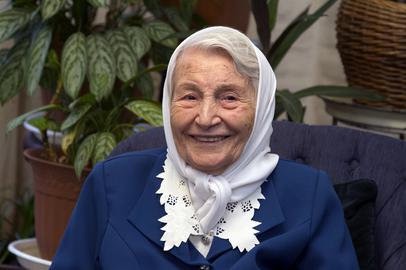
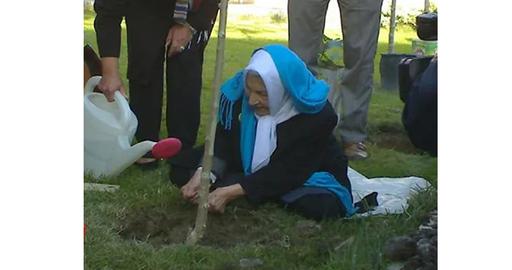





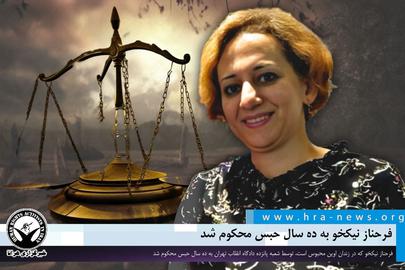








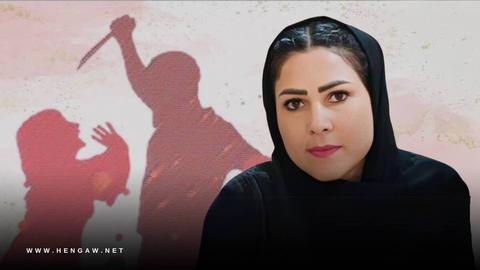


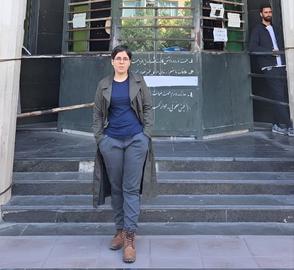


comments